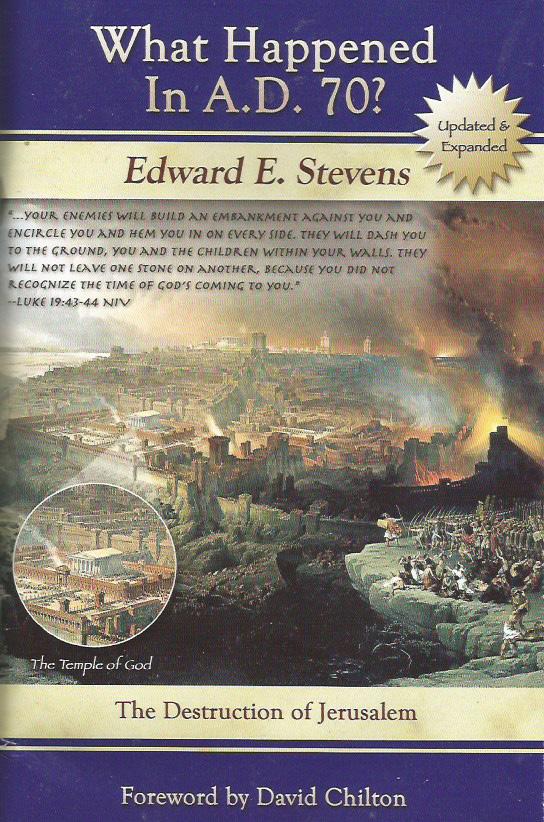
3 minute read
WHAT HAPPENED IN A.D. 70
from Trojan Warrior's
by David Clarke
368 and tradition. It provides much exposition of the text of Revelation. A large part of the argument deals with the identity of the beast (666) as Nero Caesar, the first imperial persecutor of the Church. Available as a Paperback
WHAT HAPPENED IN A.D. 70
Advertisement
Edward E.Stevens
This book introduces a view of Bible prophecy which many have found extremely helpful in their Bible study. It explains the end time riddles which have always bothered students of Bible prophecy. It is a consistent view which makes the book of Revelation much easier to understand. It establishes when the New Testament canon of scripture was completed, demolishes the liberal attack on the inspiration of the New Testament, and is more conservative on most other issues than traditional views. And there is no compromise of any essential Biblical doctrine of the Christian faith.
The key to understand any passage of scripture has always been a good grasp of the historical setting in which it was originally written {audience relevance). Two thousand yeas from now our history, culture, politics and language will have changed dramatically. Imagine someone then having to learn the ancient language of “American English” to read our USA newspapers! If they saw one of our political cartoons with a donkey and elephant, what would they think? How would they go about understanding it? Not only would they have to study the language, but also our culture, history, politics and economics. The same applies to Bible study. If we are
369 really going to understand what all the “donkeys and elephants” (beasts, harlots, dragons, etc.) Symbolize in the book of Revelation, we will have to seriously and carefully study the language, history, culture and politics of the First Century. Of course, the truths essential for salvation are couched in simple language that everyone can grasp. But there are numerous scriptures in the Bible which are “hard to understand” (cf. 2 Pet 3:16), and Bible prophecy is one of those things which must be approached with much more focus on the original historical art cultural context (audience relevance)
One of the main purposes of this book is to provide a closer look at the historical framework behind the New Testament. Many hove found it helpful to lay aside (at least temporarily) the legion of speculative opinions about the book of Revelation, and look at a more historical alternative, which is that the book of Revelation was written to the first century church and had primary relevance to them. It warned of events that were about to happen in their lifetime, and prepared them for the tribulation and other events associated with the End of the Jewish Age.
Atheists, skeptics, Jew, Muslims, and liberal critics of the bible use the supposed failure of those end times events to occur in the First Century to undermine the integrity of Christs and the inspired NT writings.
Non-Christian Jews laugh at this supposed non-occurrence, and use it as evidence that Jesus is not the Messiah. Their forefathers in the flesh rejected Jesus in His first coming because He did not fulfill the Old Testament prophecies in the materialistic and nationalistic way that they were expecting, even though Jesus told them that His Kingdom was not of this world, and that it would be within them instead. Yet it seems that many futurists today are expecting that same kind of materialistic and nationalistic kingdom to arrive at a future return of Christ Are they making the same mistake about the Second Coming that the Jews made about His first coming? Jesus repeatedly said His Kingdom is “not of this world” and that it would “not come with observation.” It is a spiritual entity, and it has arrived We live in it. Both futurist Christians and non-Christian Jews need to realize this.
Christians are finally beginning to seek alternatives to the fatally flawed futurist interpretation. This book introduces the Preterist view.
“Preterist” simply means past in fulfillment It means that Christ has already fulfilled His promise to return and consummate redemption in Himself and His ongoing spiritual kingdom (the church). We should be like the noble-minded Bereans and “search the scriptures daily to see whether these things are true’’ You might want to have your Bible open alongside as you read.










